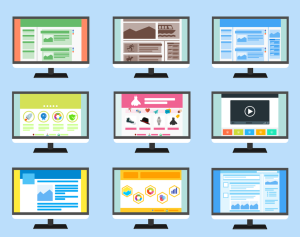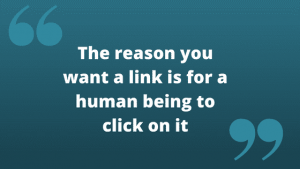Entrepreneurship is often portrayed as the domain of the young. We hear countless stories of founders in their 20s and 30s raising millions of dollars, which creates the impression that the best time to start a business is at the beginning your career.
But the statistics show otherwise. A now-commonly referenced 2018 study found that the average age among entrepreneurs in the us was 42, with the average being a little higher at 45, if we’re just looking at the fastest growing startups.
According to the Bureau of Labor Statistics, the pandemic saw an entrepreneurship boom and more and more women in midlife are part of this cohort. Another survey found that Gen X (those between the ages of 44 to 59) make up 69% of women business owners in 2023.
Fast Company reached out to a number of women who made the decision to start a business in midlife or older. While some of these women have been lifelong entrepreneurs, others did so after a long and successful corporate career. They shared their thoughts on what drove them to take this step, the unique perspectives that women in midlife can bring, and why starting a business at this stage is not as risky as it seems.
Finding free time and freedom in midlife
Judy Schoenberg and Linda Lautenberg started Evolve.Me—a career consultancy that works with midlife women seeking career pivots and reinvention—when Schoenberg was in her 40s and Lautenberg was in her 50s. And they’re seeing more and more of their midlife clients and peers embark on the entrepreneurial journey is because that’s when many find themselves with more free time.
That was the case for Lautenberg, who started her career in finance and left the workforce to raise her three children for sixteen years before co-founding Evolve.Me with Schoenberg.
The extra time in midlife also provide many women freedom to pursue goals that might have been at the back of their minds for a long time. “The women we work with, because they come with all these life experiences, [they] are much more aware of their strengths,” says Schoenberg. “If they want to live out a dream, they see it as ‘okay I want to do it; the time is now.’ I think there is more of a sense of urgency, [and] also just self-awareness.”
Tapping into professional experience and networks
Part of the misconception that younger entrepreneurs are more likely to succeed is based on the idea that they are more willing to take risks, and in many cases have fewer responsibilities. And while both of these things are true, it doesn’t necessarily mean that they’re more likely to be successful. Older entrepreneurs bring a lot of experience and perspective that those in their 20s and 30s just don’t tend to have yet. And, as for the risk factor, midlife tends to be when you “have the financial wherewithal to be able to step out and take more risk,” says Lautenberg.
Erin Halper, who founded a membership community for independent consultants called The Upside, said that women in midlife have access to networks, relationships, and resources that one can only build through years of working.
As someone who started a business in her 20s and her 40s, Halper says that while younger entrepreneurs might work longer hours (like she did), those who start a business in midlife “are quicker at making the right decisions rather than digging their heels.” Having an extensive professional network can also be helpful at the beginning of an entrepreneurial journey, says Schoenberg, because those relationships often turn to clients and customers.
A response to ageism and burnout in the corporate world
For Raksha Shah, who started a nutrition practice at 65 after a long successful career in pharmaceuticals and biotech, entrepreneurship was an alternative path to the high-pressure and fluctuations that come with working in corporate at a high level. She’s seeing many of her peers and colleagues do the same thing, saying “they’re burnt out with their journey in corporate America. They don’t think they’re valued.”
Halper sees a similar sentiment within her members, many of whom are high-achieving women in midlife. “They are so tired of ageism in their industry, and there’s probably no industry where it doesn’t exist,” she says “A lot of our members in their 50s said they felt pushed out.”
Starting a consulting business allows many of these women to use their age as a competitive advantage, Halper says, because clients value the “years and years of expertise that goes into making other companies make really big changes and have [a] really big impact.”
Greater resilience to discomfort and failure
Schoenberg also believes that part of the reason why midlife is a great time to start a business is that they are more resilient to setbacks and failures because they’ve often lived through them and come out the other side.
Ups and downs are inevitable in entrepreneurship, Schoenberg says, and she believes that those who’ve experience both failures and success are able to navigate it better than those just starting out in their career. They can use their experience “as a foundation to take a chance on themselves, to bet on themselves. I think the risk-tolerance is higher in midlife. They can bounce back, are resilient, and are not afraid of failing as much.”
Edith Cooper, who cofounded life and career coaching platform Medley with her daughter Jordan Taylor, says that her 30-year career on Wall Street helped her gave her the sense of perspective that help her “manage the ups and downs of entrepreneurship.” She says: “I’ve built up a comfort with discomfort.”
Defining success on their own terms
Ultimately, many women who choose to start a business in midlife do so as a way to work and define success on their own terms. Halper says that for some, it’s about hitting certain numbers and metrics, but for others, it might be about earning $400,000 a year while working just 20 hours a week.
Susan Berman, the founder of a consultancy that helps small to medium businesses with brand strategy and growth, said that being an entrepreneur in midlife allows for more flexibility, and that, for those burned out working corporate jobs or for somebody else, it can be satisfying to work toward something for themselves. “The experience of having worked for a while, and knowing what you want, I think it gives people a little bit more perspective,” she says.
(5)








